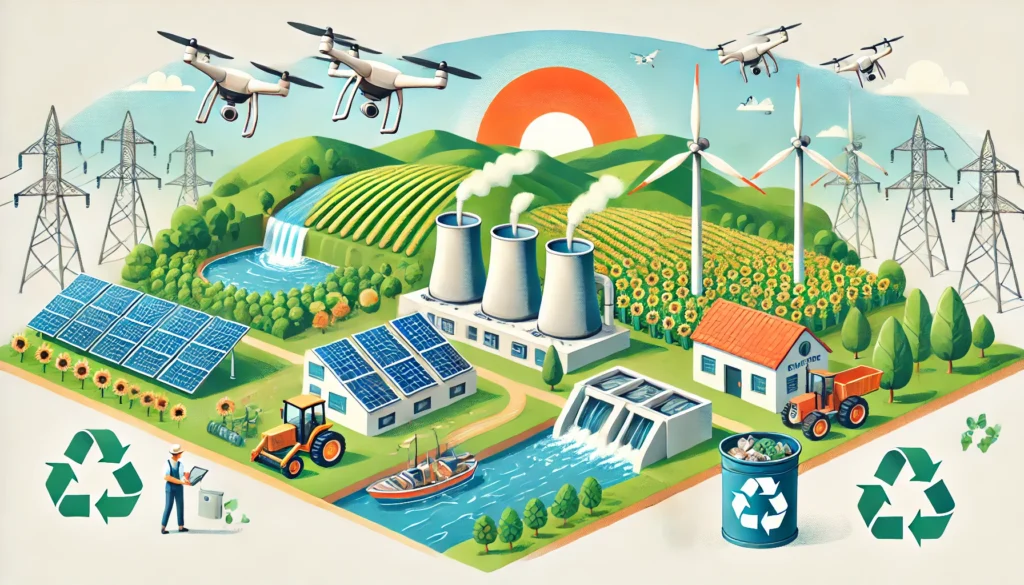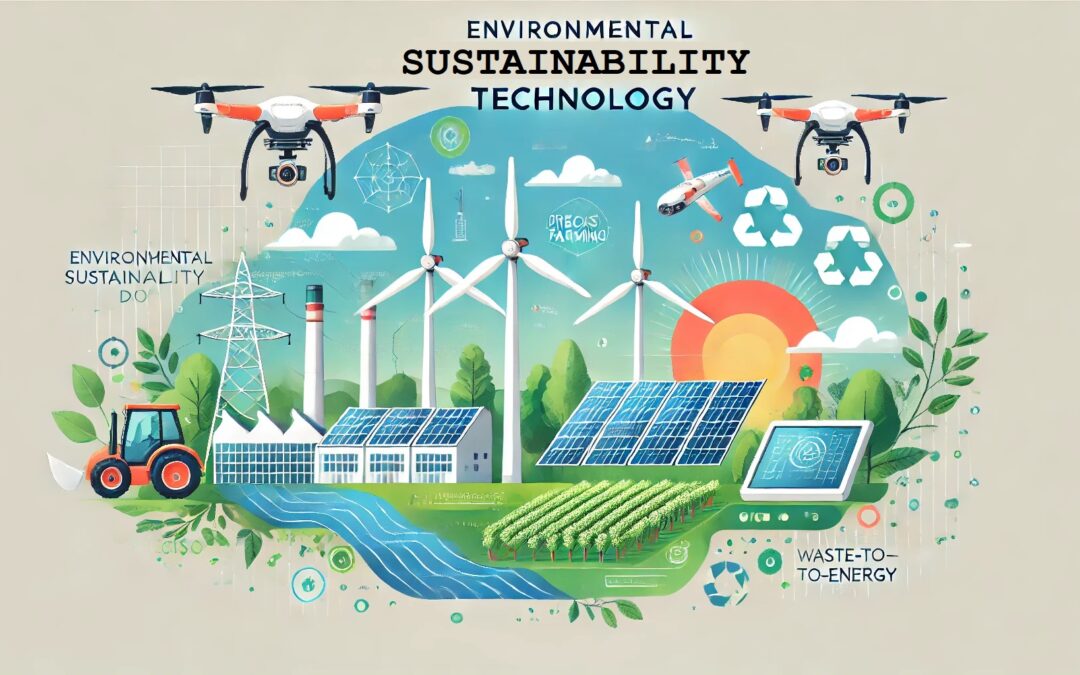Environmental sustainability has become a pressing global concern, with the need for innovative solutions growing more urgent by the day. One of the most promising avenues for addressing these environmental challenges is through the integration of cutting-edge technology. From renewable energy to sustainable agriculture, technological advancements offer creative and effective solutions for a sustainable future. This blog post explores how specific technological developments are driving environmental sustainability and the challenges and solutions associated with their adoption.
Renewable Energy Technologies
Current State of Renewable Energy
Renewable energy sources such as solar, wind, and hydroelectric power have seen significant advancements in recent years. These technologies now provide competitive advantages over traditional fossil fuels, not only in terms of cost but also in environmental impact.
Technological Advancements
- Solar Power: Advances in photovoltaic cell efficiency and energy storage solutions have made solar power more accessible and cost-effective.
- Wind Power: Innovations in turbine design and offshore wind farms have increased the viability and output of wind energy.
- Hydroelectric Power: Improved turbine technologies and micro-hydropower systems are making hydroelectric power more versatile and less environmentally intrusive.
Environmental Benefits
The primary environmental benefit of renewable energy sources is the reduction of greenhouse gas emissions. By emitting little or no greenhouse gases, these technologies help mitigate climate change and reduce air pollution. Additionally, they contribute to energy security and reduce dependence on finite fossil fuels.
Precision Farming and Sustainable Agriculture
Importance of Precision Farming
Precision farming is a vital component of sustainable agriculture, allowing farmers to optimize resource use, reduce waste, and enhance crop yields.
Technologies in Precision Farming
- Data Analytics: Collecting and analyzing data on soil conditions, weather patterns, and crop health to make informed decisions.
- Drones: Using aerial imagery to monitor crop health and field conditions.
- GPS Technology: Enabling precise application of water, fertilizers, and pesticides.
Benefits of Precision Farming
By utilizing these technologies, farmers can minimize environmental impacts and conserve natural resources. Advances in genetic engineering and biotechnology have also led to the development of drought-resistant and pest-resistant crop varieties, crucial for ensuring food security.
Waste Management Innovations
Trash-to-Energy Technologies
Waste management is another area where technology significantly contributes to environmental sustainability. Trash-to-energy technologies convert waste into usable energy, reducing the amount of waste that ends up in landfills.
Specific Technologies
- Anaerobic Digestion: Converting organic waste into biogas, which can be used for energy production.
- Incinerators: Using advanced combustion processes to convert waste into energy.
- Chemical Recycling: Breaking down plastics and other materials into their chemical components for reuse.
Environmental and Economic Benefits
These technologies enhance resource efficiency, reduce landfill waste, and produce renewable energy, contributing to both environmental and economic sustainability.

Challenges and Solutions for Technology Adoption
Common Barriers
- High Upfront Costs: The initial investment required for sustainable technologies can be prohibitive.
- Lack of Infrastructure: Many regions lack the necessary infrastructure to support new technologies.
- Regulatory Obstacles: Inconsistent regulations can hinder the adoption of sustainable practices.
Potential Solutions
- Government Incentives: Policies and incentives that support the adoption of sustainable technologies.
- Education and Training Programs: Equipping individuals and communities with the skills needed to embrace and benefit from new technologies.
Conclusion
Technology offers innovative ways to reduce environmental impacts and promote resource efficiency, which are critical for achieving environmental sustainability. By successfully integrating renewable energy, precision farming, and advanced waste management technologies, we can create a more sustainable future. To realize the full potential of these technologies and protect the welfare of present and future generations, it is imperative to remove adoption barriers and ensure fair access to these advancements.
Are you an environmental enthusiast considering adopting practices that improve the health of the environment? Organizations like the Ecolonomics Action Team are committed to championing practices and causes that enhance environmental sustainability.
You can become part of the team by registering with EAT Community. Join us in making a positive impact on the planet!
Related Articles and Resources:
- Empowering the Future: How Renewable Energy Storage is Revolutionizing Sustainable Power Grids
- How Does Solar Work?
- Wind Energy Basics
- Hydropower Basics
- Precision Farming: Everything You Need to Know
- How Regenerative Agriculture Contributes to Sustainable Food Systems
- The Crucial Role of Biodiversity Conservation in Thriving Urban Ecosystems


Recent Comments